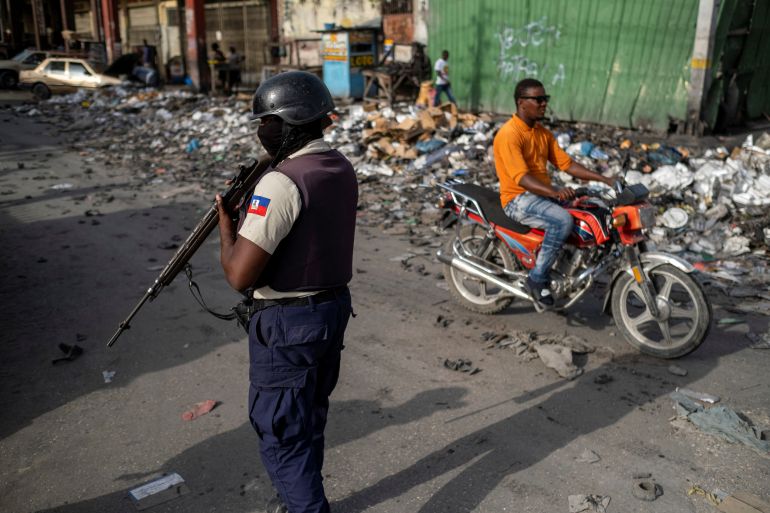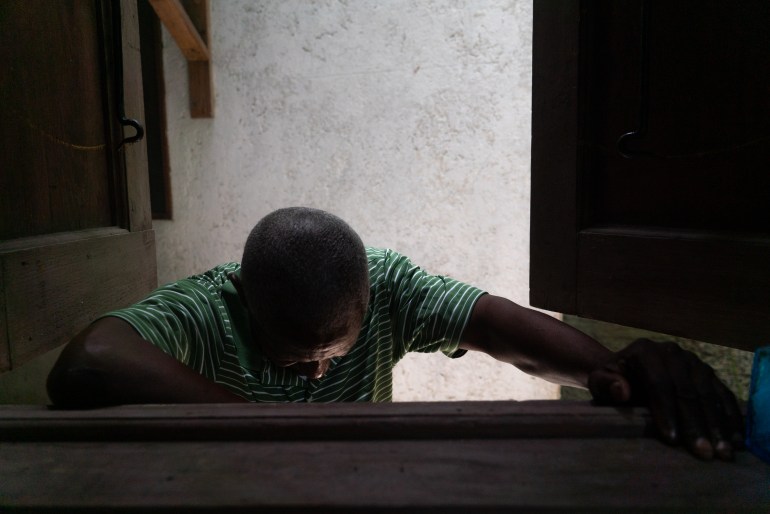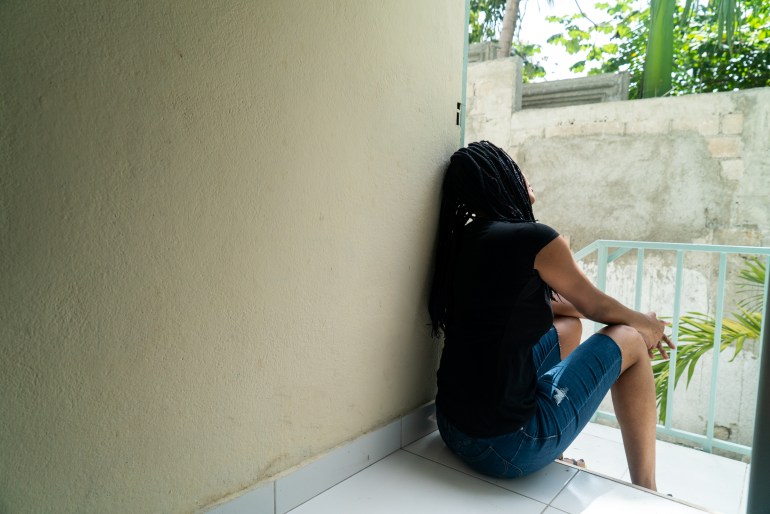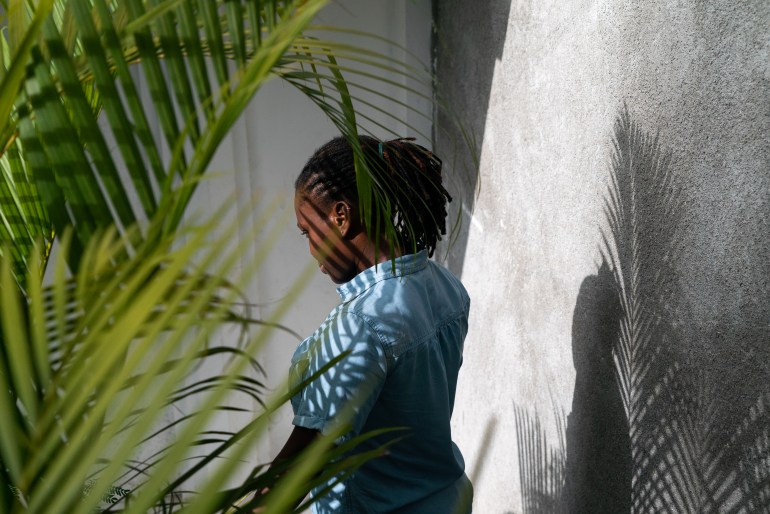Haiti: ‘If a president is killed in his own home, who is exempt?’
Al Jazeera speaks to Haitians in Port-au-Prince about President Jovenel Moise’s killing and where the country is headed.

Port-au-Prince, Haiti – Following the news of Haitian President Jovenel Moise’s assassination in the early hours of July 7, a state of collective shock took over the country.
The streets of Port-au-Prince – normally buzzing with vendors, taxi traffic, and more than a month of fierce fighting between armed gangs that displaced thousands across the capital – fell silent.
Keep reading
list of 4 itemsWhat’s next for Haiti after the president’s assassination?
Haiti, after Jovenel Moise’s assassination
What is really behind the crisis in Haiti?
The deadly attack – which also injured Martine Moise, the late president’s wife – has exacerbated instability in a country that was already grappling with deep political divisions, several defunct state institutions, and a level of violence that has produced more than a dozen massacres since 2018.
The presidency of Moise, who took office in 2017 after winning about 590,000 votes in the nation of 11 million, was quickly marked by stiff opposition following corruption allegations that he denied.
Moise had been governing by decree since January 2020 after parliamentary terms were left to expire, and faced mass protests demanding his resignation as opposition leaders, rights advocates and legal experts said his term expired in February.
Now, as questions continue to swirl about who was behind his assassination despite a string of arrests, Haiti swore in on Tuesday a new prime minister, Ariel Henry, who had been chosen by Moise just days before the president was killed.
An international push to hold general elections later this year met staunch criticism from civil society leaders, however, who are demanding a Haitian-led solution to the continuing crisis.
With preparations under way to lay Moise to rest in his hometown of Cap-Haitien in the north on Friday, Al Jazeera spoke to four people in Port-au-Prince about their thoughts following the killing – and about where Haiti is headed.
Emmelio, 61, mason originally from Grand-Anse

“I have been living for 41 years in Port-au-Prince … There have always been difficult moments, but not like today. Living wasn’t as expensive back then. I came to Port-au-Prince under the [Jean-Claude] Duvalier regime.
“There were a lot of people that died and a lot of unrest when ‘Baby Doc’ (a nickname of Jean-Claude Duvalier) was overthrown, but still not like today.
“It’s concerning what happened [to Moise]. Anyone can die, but the way President Jovenel Moise [did] shows that no one is exempt; if a president is killed in his own home, who is exempt from that same fate? That’s why everyone is so afraid. It makes you feel like you aren’t human.
“You don’t need to have liked him for it to make you feel bad, it’s not humane. The president is supposed to be the first citizen in the country. What does this mean for the people without names in the street?
“I think that there must be reform in the country. To kill people and replace them with the same people does nothing; it must be through dialogue.”
Keziah, 36, documentary filmmaker and photographer originally from Jacmel

“[Moise] was a president who was very contradictory. He came with some good ideas but he was corrupt and would take from what he was giving.
“There were already a lot of problems before. We had a lot of social problems, a lot of class problems. We’ve lost all social values.
“I would like people to know that we are a people that pull from many resources inside ourselves. If more people could have access to a good education in the country … then the upcoming generation can be taught.
“Our current system is not currently set up to give justice. The same people cycle through it. We can’t really believe in it yet.”
Savanel, 35, motorcycle driver originally from Aux Cayes

“If he had stepped down on February 7 I don’t think this would have happened to him. I woke up at four in the morning to the news of him being killed. But honestly, Jovenel’s government has taken everything from me, it’s not easy for me to believe he is gone.
“The way he was killed is not something that brings me joy, I cannot take joy in his death. It doesn’t bother me that he is gone because he was part of corruption. However, I can’t help but think that if he can die in that way the fate of the rest of us is worse.
“Insecurity has become so bad under Jovenel. I used to go to the beach, I used to go to programmes in the street at night. Now, I have to enter my house [before] dark. If I had hope, I would stay in Haiti, but I want to leave to live someplace else because I don’t see how any of this can get better.
“The other day I had to go to Carrefour to find gas since there have been gas shortages in the country. As I was passing through Martissant (a neighbourhood of Port-au-Prince) I saw a group of young women standing on the side of the road with guns in their hands.”
Naline, 31, university student

“To kill a president who is our head of state, even if he didn’t manage the government or country well and destroyed our institutions, we didn’t want him to be killed.
“There were problems with how he managed the government and he was seen as a de facto president because he stayed even though his mandate or term had ended in February. There was big opposition to him, but he is still a living person – you can’t kill him just because you have problems with him.
“It’s exhausting trying to predict when or when we cannot leave our houses to go to work, to go to school. We’ve developed a resistance to the dysfunction but some days it is still hard to manage or deal with.
“Our biggest sense of pride is our successful revolution against slavery and the French, but I would like for our country not to live in the past, to move forward and carry real change. We are people with a lot of challenges, but we are also unique and special.”
*Al Jazeera is shielding the interviewees’ identities amid fears of retribution